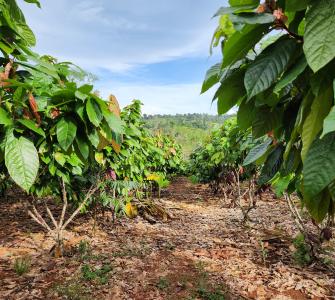Brazil continues to be the frontline of the global climate crisis, as it is home to one of the earth’s largest and most threatened carbon sinks, the Amazon rainforest.
Economic alternatives that can both reduce or halt deforestation and promote restoration of already damaged areas, will be crucial for the effective mitigation of greenhouse gas emissions and their related socioeconomic impacts in Brazil and beyond.
State policies for valuing forests, jurisdictional REDD+ (Reducing Emissions from Deforestation and Forest Degradation) and Environmental Services systems are essential to guarantee the preservation of forests’ ecosystem services, such as climate regulation and high quality carbon that maximizes social co-benefits. As they so stand, these policies must be strengthened technically, scientifically and legally to better protect the forests, and sustain restoration projects.
Conservation Strategy Fund (CSF) Brazil worked with IPAM (Instituto de Pesquisa Ambiental da Amazônia, Amazon Environmental Research Institute) on project to develop a strategy to: (a) avoid legal and illegal deforestation; (b) restore degraded areas with agroforestry; and (c) work with the public sector to avoid deforestation in protected areas.
During the project, CSF Brazil and IPAM developed a business plan proposal for a potential carbon project in agrarian reform settlements. Within this business plan, passive restoration techniques (such as natural regeneration) and active restoration techniques (such as direct seeding) were analyzed, taking into account their costs and benefits. CSF Brazil and IPAM also developed different analyses to identify structural actions to boost cocoa and açaí value chains. Some examples of the aspects considered in these analyses are: chain links, market structure, success cases, priority investments and implementation plans.
We completed a valuation of forest assets such as carbon, water, and non-timber products, and helped implement a jurisdictional public-private arrangement for landscape protection, conservation, and restoration in well-defined geographical areas in the Amazon biome.
CSF Brazil delivered: (1) a list of promising territories for action, with a strategic vision for implementation; (2) a qualitative analysis of business and operation models for the selected areas; and (3) a quantitative pre-feasibility study detailing the economic models for the selected initiatives.
The guidance resulting from this project provided our partners in the for-profit and government sectors with a strategic plan for conservation and restoration initiatives as financially viable business opportunities.
CSF Brazil, together with its partners, continues to monitor the jurisdictional guidelines for new carbon projects, to follow up on the proposal and evolve into new projects.
Photo: Cocoa plantation, traditional Brazilian fruit. Photo captured on a field work in Altamira, Pará. May 2023.
Photo Credit: CSF team.

